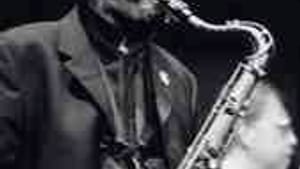Stay in the Loop
BSR publishes on a weekly schedule, with an email newsletter every Wednesday and Thursday morning. There’s no paywall, and subscribing is always free.
Good riddance to jazz clubs?
Heath Brothers: Vintage jazz at the Perelman

The Kimmel Center's season-long focus on Philadelphia's jazz legacy couldn't have been better represented by a pair of hometown legends: the Heath Brothers, whose careers span the big band, bop, cool, chamber and progressive eras with distinction. The saxophonist Jimmy Heath and his brother Albert "Tootie" Heath on drums held their own alongside their under-30 bandmates, the trombonist Michael Dease, the pianist Jeb Patton and the bassist David Wong.
If the brothers Heath made any adjustments for their ages during their two magical sets, only they could tell. Jimmy, just weeks away from his 85th birthday, maintained golden tones and fully punctuated horn lines, and Tootie's drum was fleet and muscular throughout. Their brother, the bassist Percy, died in 2005, but his musical influence remained very much onstage.
The brothers were simpatico together except for one issue: the pros and cons of playing jazz in clubs as opposed to concert halls.
Smoke and noise
In a recent video shot for WRTI, Jimmy revisited the 15 or so locales of Philadelphia's jazz clubs, now all disappeared. Jimmy looked back on that scene with fondness, but Albert animatedly denounced the noisy, smoke-filled bars that provided the backdrop for jazz through much of the 20th Century.
"No more clubs," Albert said, opening his arms in appreciation of a respectable venue like the Perelman.
The legendary tenor saxophonist Sonny Rollins told me two years ago that he didn"'t miss the clubs at all— those dives where musicians coped with poor working conditions, bad contracts and haphazard management, not to mention the club culture of drugs, alcohol and hecklers. The concert hall, Rollins maintains, is the proper place to hear the music. But even Rollins acknowledged that some of creative juice was lost with the demise of the clubs.
American Classical music?
Certainly everything changed for this art form in 1944 when the impresario Norman Granz started presenting concert jazz with his "Jazz at the Philharmonic" concerts, which crisscrossed the U.S., challenging the public to appreciate jazz as a unique American art form on a par with classical music.
Still, some musicians— Charlie Parker comes to mind— bristled at the concert hall format, because it encroached on one of the core aesthetics of jazz music: improvisation.
The debate continues. But last week, as I listened to the Heath Quintet and especially Jimmy Heath's artistry and deportment at the Perelman, nothing seemed lost except the clinking of glasses.
If the brothers Heath made any adjustments for their ages during their two magical sets, only they could tell. Jimmy, just weeks away from his 85th birthday, maintained golden tones and fully punctuated horn lines, and Tootie's drum was fleet and muscular throughout. Their brother, the bassist Percy, died in 2005, but his musical influence remained very much onstage.
The brothers were simpatico together except for one issue: the pros and cons of playing jazz in clubs as opposed to concert halls.
Smoke and noise
In a recent video shot for WRTI, Jimmy revisited the 15 or so locales of Philadelphia's jazz clubs, now all disappeared. Jimmy looked back on that scene with fondness, but Albert animatedly denounced the noisy, smoke-filled bars that provided the backdrop for jazz through much of the 20th Century.
"No more clubs," Albert said, opening his arms in appreciation of a respectable venue like the Perelman.
The legendary tenor saxophonist Sonny Rollins told me two years ago that he didn"'t miss the clubs at all— those dives where musicians coped with poor working conditions, bad contracts and haphazard management, not to mention the club culture of drugs, alcohol and hecklers. The concert hall, Rollins maintains, is the proper place to hear the music. But even Rollins acknowledged that some of creative juice was lost with the demise of the clubs.
American Classical music?
Certainly everything changed for this art form in 1944 when the impresario Norman Granz started presenting concert jazz with his "Jazz at the Philharmonic" concerts, which crisscrossed the U.S., challenging the public to appreciate jazz as a unique American art form on a par with classical music.
Still, some musicians— Charlie Parker comes to mind— bristled at the concert hall format, because it encroached on one of the core aesthetics of jazz music: improvisation.
The debate continues. But last week, as I listened to the Heath Quintet and especially Jimmy Heath's artistry and deportment at the Perelman, nothing seemed lost except the clinking of glasses.
What, When, Where
Heath Brothers Quintet. October 15, 2011 at Perelman Theater, Kimmel Center, Broad and Spruce Sts. www.kimmelcenter.org.
Sign up for our newsletter
All of the week's new articles, all in one place. Sign up for the free weekly BSR newsletters, and don't miss a conversation.
